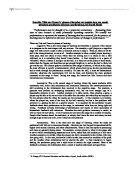The autonomous phase:
“This is the stage that high-level performers participate at. In this stage the performer is so elite that the skill is like nothing to them they perform it almost automatically or habitual leaving there mind free to think about other things and not thinking about the motor skill itself.” (5)
The figure above (fig 1) shows how you can progress through the learning stages. The stages must be passed through before the next stage can be achieved. It is possible to move back a stage if one hasn’t practised for some time therefore it isn’t as easy and they have to think about it again. To maintain the skill at phase 3, you must bring phase 2 repeatedly into operation.
There are many different types of practices these are:
- Distributed
- Fixed
- Mass
- Variable
They can be described as:
“Distributed practices are interspersed with breaks, which can either be rest or another skill”(2)
“Massed practices are when the skill is practiced until learnt without taking a break.” (2)
“Variable practices are when a skill is practiced in a variety of different contexts and experiencing the full range of situations in which the technique or tactic might be used in competition.” (2)
“Fixed practices are when a specific movement is practiced repeatedly, often referred to as a drill.” (2)
The aim of the learner, who is at the cognitive stage, is to begin to associate the 'feel' of the movements with the end result. “The cognitive phase is the exploratory phase.”(4) At the cognitive stage you are accomplishing the basic technique to be able to functionally complete the skill. For example in netball you could be practicing a chest pass and getting feedback from your teacher or coach, this feedback is important as it you then recognise that you have made errors. The best method for teaching cognitive learners is using distributed practices as the practice is broken down into sections allowing the performers to have a break and receive feedback before starting again. However there is also an element of fixed practice as well as this allows repletion of the skill so that it becomes ‘over learned’, although technically they may be sound, they may now need to practice the skill in more pressurised situation to help work towards the fluidity, consistency and accuracy that is achieved later on. Performance is normally characterised by fewer errors, and those that there are, are normally caused by difficulties in controlling speed or force. An ideal structure of a practice to enhance this performance is to adopt a 'whole - part - whole' routine that allows the player to get a clear mental image and a feel for the whole skill before practices the elements of it.
The associative learner is at the point where their performance is a lot more consistent with the simpler elements being fluent. However they still have to think about what they do, this means that variable and fixed practices are the most suitable to them. The variable method means that the skill gets developed in an open environment allowing the skill to develop and adapt to different situations rather than learning it by repetition of the skill over and over until it becomes natural. The pure-part method of teaching would work the best as this allows each separate part to be learnt before moving on.
The autonomous stage uses the massed practice method as this is designed for experienced performers, involving little conscious control. The information processing time is reduced and distractions have less effect on performance. In the autonomous phase performers are now able to not only detect their own errors but also make the proper corrections to improve it. Also in this stage the changing of the day-to-day performance has become very small. This autonomous stage is resulted by a large amount of practice, which allows performers to produce a reaction without having to concentrate on the whole movement, e.g. when you have mastered the forehand drive in tennis, you can then work on placing the shot. To remain in this phase constant practice is required to keep reinforcing the motor programmes. Fitts and Posner state there is a good deal of similarity between highly practice skills and reflexes and their theory states that this is the final stage of learning.
To conclude I believe that each stage of learning suits a different method of teaching and different practices. However, I feel that the practices overlap between the stages, as there is no definite way for cognitive, associative or autonomous learners to practice at each stage. This is because the stages are quite wide apart and there are sections in between them were performers could be as they are no longer cognitive but not quite associative. For cognitive learners I think that distributed is the best method of practices, which will enhance their performance the most, but they also could use the fixed practices as this is using the basic skills and purely learning them until then become routine. Associative learners should use fixed and variable practices to enhance their performance, fixed means they repeat the skill over and over but variable is where they put the skill into action in game situations. Autonomous performers should practice using the massed practice as this practice method is designed to stimulate fatigue and are only for the performers with a high-level of fitness and are experienced. The performers can then act on intrinsic feedback, which will help enhance their performance.
Word Count: 1110
Bibliography
- A level Physical education through diagrams (Morton et al, 2000)
-
(created Jan 1997, last modified Dec 2003)
- Advanced PE for Edexcel (Galligan et al, 2000)
-
-
(created 2000)







